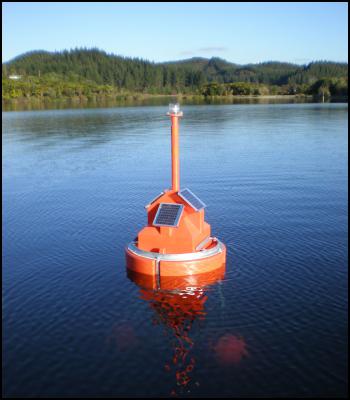LERNZ hit the road to show how to save lakes
Friday, 17 February 2012, 12:48 pm
Press Release: University of Waikato

17 February 2012
LERNZ hit the road to show how to save lakes
A team of scientists from the University of Waikato is heading on a nationwide road show to highlight what they can do to save the country's lakes.
LERNZ, the Lakes Ecosystem Restoration New Zealand programme, based at Waikato University and funded by the Ministry of Science and Innovation, will be travelling the country from Whangarei to Invercargill this February and March, visiting regional councils to show how their research can help their lakes and waterways.
The scientists have developed pest fish management and monitoring techniques, including trapping and behavioural removal, genetic identification from water samples, electrofishing and satellite imaging for detecting changes in water quality.
They've also developed harmful algae bloom management techniques which involve genetic tools for assessing toxin potential, automated high frequency monitoring buoys, remote sensing of water quality and restoration prototypes for combating algal blooming.
This is part of a $10 million project over 10 years to research and save New Zealand's lakes.
Research manager Jo Faber says the road show is a chance for researchers to speak to councils about they work they do, and how it can be put into practise in their area.
Advertisement - scroll to continue reading
"Part of the 10 year project is that we get the end users involved. This means making sure regional councils, iwi and other parties know about our research and what we can do.
"We don't just want to present the tools we've come up with; we want feedback to work interactively with end users to clean up their lakes."
Native fish and plants are in decline in most New Zealand lakes, as pest fish and invasive weed out-compete the native species. Toxic algal blooms have in some cases resulted in water supply closure, cattle deaths and closures of lakes for recreational activities.
ENDS
Advertisement - scroll to continue reading
a.supporter:hover {background:#EC4438!important;} @media screen and (max-width: 480px) { #byline-block div.byline-block {padding-right:16px;}}
Using Scoop for work?
Scoop is free for personal use, but you’ll need a licence for work use. This is part of our Ethical Paywall and how we fund Scoop. Join today with plans starting from less than $3 per week, plus gain access to exclusive Pro features.
Join Pro Individual Find out more
Find more from University of Waikato on InfoPages.